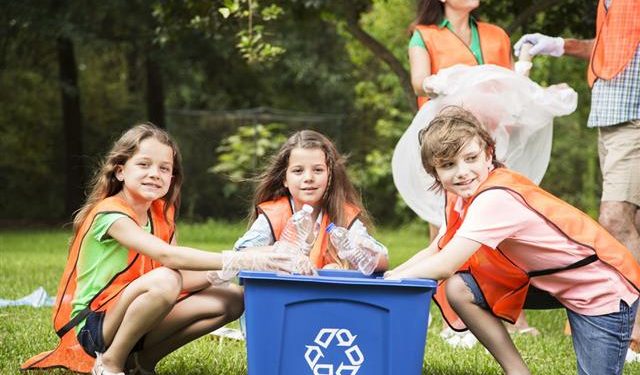In today’s world, where environmental challenges loom large, adopting sustainable practices is more crucial than ever. Recycling, a seemingly straightforward action, plays a pivotal role in safeguarding our planet for future generations.
From lessening the burden on landfills to conserving valuable resources, recycling offers substantial contributions to environmental protection. Let’s explore the myriad ways recycling benefits the environment, one eco-conscious step at a time.
1. Easing the Landfill Crisis
Picture a colossal heap of waste that grows taller each day, emitting harmful gases and releasing toxins into the soil and water. This grim scenario mirrors the reality of landfills worldwide. However, recycling intervenes in this impending environmental catastrophe.
By diverting materials like paper, plastics, and glass away from landfills, we alleviate their environmental impact and reduce the strain on our already overburdened waste management systems.
2. Resource Conservation
Every product we use requires raw materials, often extracted through resource-intensive processes. Recycling offers a sustainable alternative. When we recycle materials such as metal recycling Oakland CA, paper, and plastics, we diminish the demand for virgin resources.
This translates into fewer trees cut down, reduced mining activities, and a decreased reliance on petroleum. Recycling essentially creates a sustainable loop in resource utilization, promoting a more environmentally friendly and balanced ecosystem.
3. Energy Efficiency
Recycling isn’t just about reusing materials; it’s also about energy savings. The production of goods from recycled materials generally consumes less energy compared to starting from scratch with raw resources.
For example, recycling aluminum demands 95% less energy than mining and refining new aluminum ore. This energy conservation aspect of recycling aids in reducing greenhouse gas emissions, mitigating climate change.
4. Wildlife Habitat Protection
Mining and deforestation often result in the destruction of natural habitats for countless species. Recycling can curtail the need for these resource-intensive activities, thus safeguarding the homes of numerous creatures.
The protection of wildlife habitats supports biodiversity and sustains the delicate equilibrium of our ecosystems.
5. Greenhouse Gas Emission Reduction
The processes involved in extracting, refining, and transporting raw materials generate substantial carbon emissions. Recycling considerably curbs these emissions.
Recycling paper, for instance, reduces greenhouse gas emissions by 74% compared to manufacturing new paper from raw materials. Each instance of recycling contributes to a cleaner atmosphere and a more stable climate.
6. Nurturing a Sustainable Mindset
Recycling goes beyond mere action; it fosters a mindset of sustainability. As individuals and communities engage in recycling, they become increasingly conscious of the impact of their consumption habits.
This heightened awareness often translates into more environmentally responsible choices in various aspects of life, from reducing single-use plastics to supporting sustainable products and practices.
Conclusion
Recycling is not merely a mundane chore; it is a potent instrument for environmental preservation and conservation.
By easing landfill pressure, conserving natural resources, enhancing energy efficiency, and promoting a sustainable mindset, recycling makes a substantial contribution to our planet’s well-being. Every small effort matter, and collectively, our actions can bring about significant change.
And always remember, whether you’re engaged recycling or supporting a child adoption agency Pinellas County FL your choices, and actions have a profound impact on forging a more sustainable and compassionate world.








